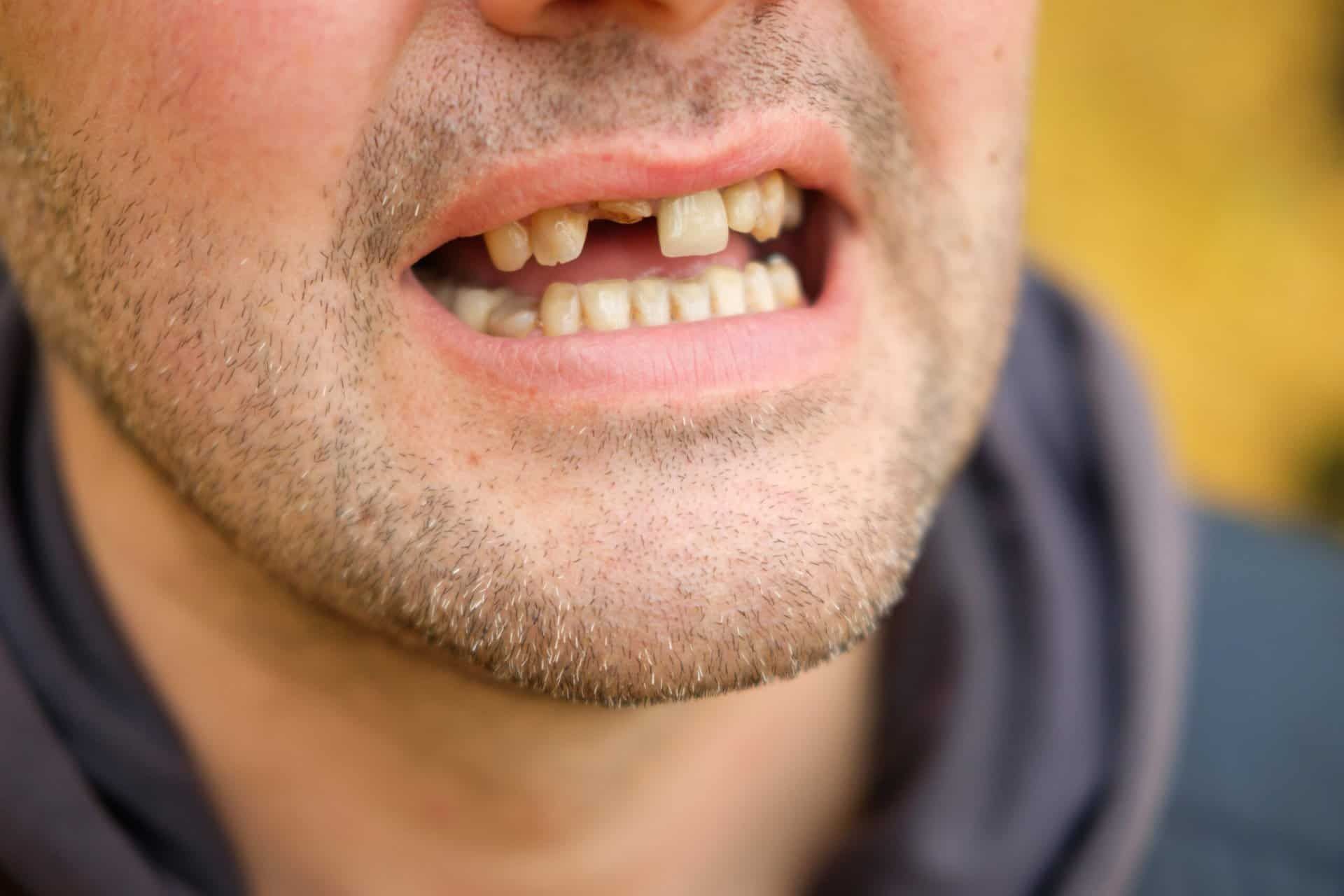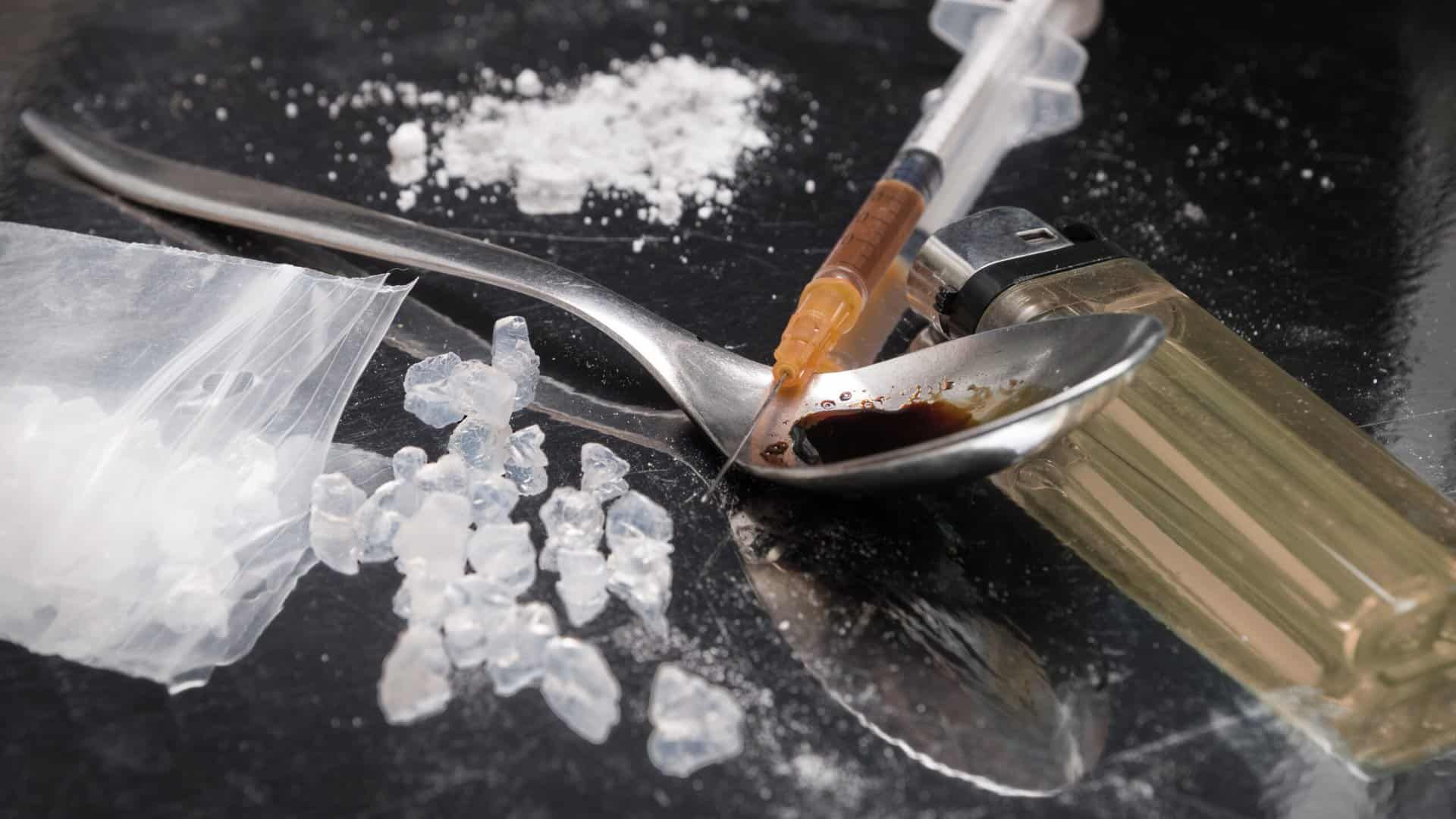What is Meth Mouth?
Methamphetamine misuse can have devastating effects on overall health, but those abusing meth develop meth mouth, which can lead to many other dental health concerns.
Additionally, methamphetamine is acidic and corrosive, which can trigger bad breath, tooth decay, gum problems, and loss of teeth. Painful infections can occur and lead to further oral disease. Some experience an urge to grind their teeth, which can cause further damage.
How Meth Mouth Develops
Meth mouth results from methamphetamine abuse and can develop quickly from the toxins in meth affecting oral hygiene. Abuse extending throughout the year can result in cavities, infections, swelling, pain, chipped and loose teeth, and periodontal disease from dry mouth.
The immune system does not work correctly due to the abuse, poor diet, and damage to the system from meth, and cannot protect against dental disease. Unfortunately, meth mouth is not curable and can lead to loss of teeth and extensive dental work.
Tooth decay is the primary sign of the development of meth mouth, but there are indicators to watch for initially. Teeth develop persistent, unremovable stains. Meth harms the salivary glands by shrinking the blood vessels of the mouth, causing dry mouth. This is the driving factor of meth mouth, the dryness of the mouth, combined with high acidic levels, attacks the teeth.
Research shown by the American Dental Association shows the following statistics from 571 methamphetamine users:
- 96% of the users had cavities
- 58% of the users had untreated tooth decay
- Only 23% retained all their natural teeth
- 89% of male users in the group study were suffering from periodontitis
- 85% of female users in the group study were suffering from periodontitis
- Cigarette smokers had higher rates of decay and tooth loss
- 31% had 6 or more missing teeth
Heavy meth users are over 4 times more likely to develop meth mouth and 3 times more likely to have broken teeth. Dry mouth induces drinking more liquids, and in the case of meth users, a craving develops for sweetened drinks.
Consequently, meth users also disregard personal hygiene, including brushing and flossing their teeth. The combination of all factors contributes to meth mouth.
Signs of Meth Mouth
The medical diagnosis for dry mouth, xerostomia, contributes to breaking down the enamel on the teeth, reducing their protective component. Methamphetamine use can also cause anxiety, restlessness, and nervousness, causing the user to grind and clench their teeth.
This contributes to teeth breaking and falling out. A high percentage of those who abuse meth do not seek dental care, and often the deterioration is irreversible.
Signs someone could be experiencing meth mouth include:
- Dry mouth or Cottonmouth
- Gum disease
- Red, swollen gums
- Tooth decay
- Clenching or grinding of teeth
- Bad breath
- Cravings for sugary drinks
- Stained teeth
- Inconsistent dental hygiene
Stages of Meth Mouth
The stages of meth mouth are significant and distinctive to the pathway of irreversible damage. The physical and mental side effects of abusing meth go hand in hand with neglect of dental hygiene. Anxiety, paranoia, and stress can induce clenching of the jaw and grinding teeth. Then, dry mouth drives an intense craving for sugary drinks.
The stages of meth mouth include the following:
- First stage: staining of the teeth, dry mouth, and bad breath
- Second stage: tooth decay and teeth change shape, sores in mouth
- Third stage: tooth fractures and loss, gum disease, and sores
Effects of Meth Mouth
Those with meth mouth that still have their teeth most likely have only rotten teeth remaining. Many experience lesions on the inner surface of the mouth, prevalent gum diseases, and teeth grinding.
Difficulties with teeth, pain in the mouth, and toothlessness do not encourage a healthy diet. Chewing problems are also present from rigidity in the oral cavity and jaw. Infections in the mouth and jaw as a result of not taking care of the decay can cause terrible pain.
As such, infections can move throughout the body and affect other organs. Unfortunately, most dental problems are irreversible. Other physical issues from untreated infection throughout the body can be severe.
Can Meth Mouth be Reversed?
When meth mouth begins, if the drug use stops with professional help, teeth may be able to remain intact. The critical factor is seeking assistance before decay, tooth loss, gum disease, and infection become too severe.
Extensive dental work may have to take place if usage continues. Mouth guards can help with grinding, and dentures or veneers could improve the situation of lost teeth.
How Detox Helps
Methamphetamine addiction can be very challenging to achieve, but it is possible to be successful. Medication-assisted treatment is helpful for withdrawal symptoms to be manageable. The taper method may be an option for treatment professionals, but medical supervision is essential.
Whatever technique the recovery team chooses, the remaining treatment is critical once the medical detox is complete. The second part of treatment is hard work to make long-term changes and set new life goals. Behavioral therapies can help to form new coping mechanisms, and individual therapy can reach deep into the roots of addiction.
Dental evaluations can begin and begin the changes for dental repair and leaving the effects of meth behind. Leaving dental caries behind and achieving the best dental hygiene possible is a great way to start sober living.
Find the Road to Recovery from Methamphetamine Addiction in Tennessee
Methamphetamine abuse can be challenging to recover from, but leaving the problem of meth mouth behind can be encouraging. While there is no cure for the damage that has been done, Freeman Recovery Center in Tennessee does have the best professional detox to begin recovery. Further treatment options are available to learn how to live a positive and sober lifestyle.
Contact Freeman Recovery Center today to find the true potential for the best outcomes.


